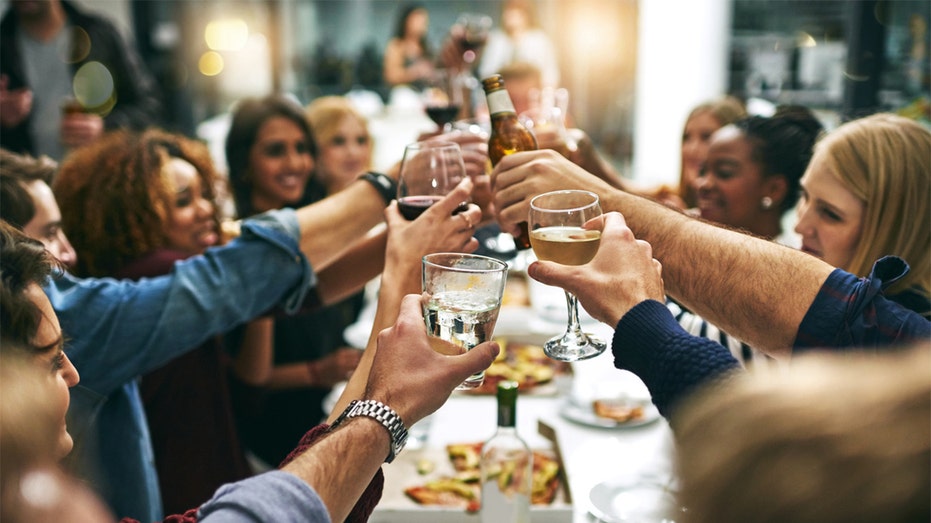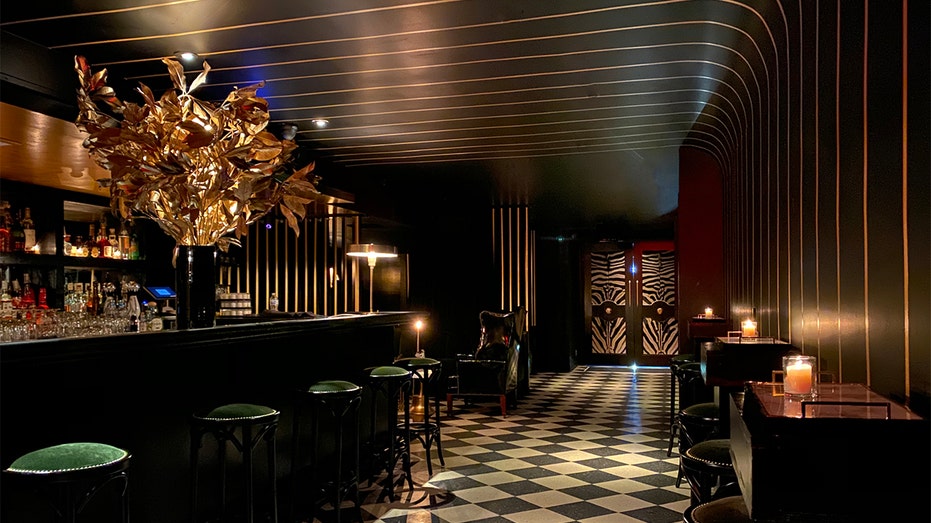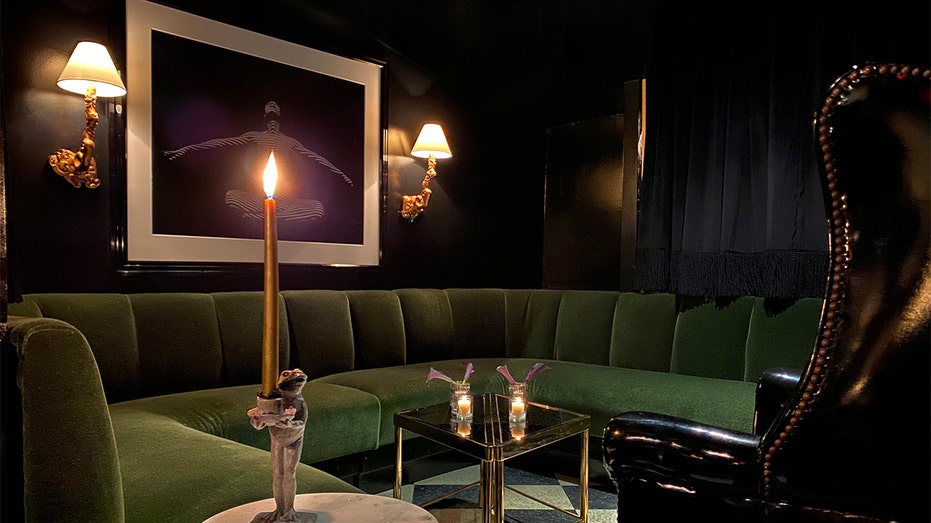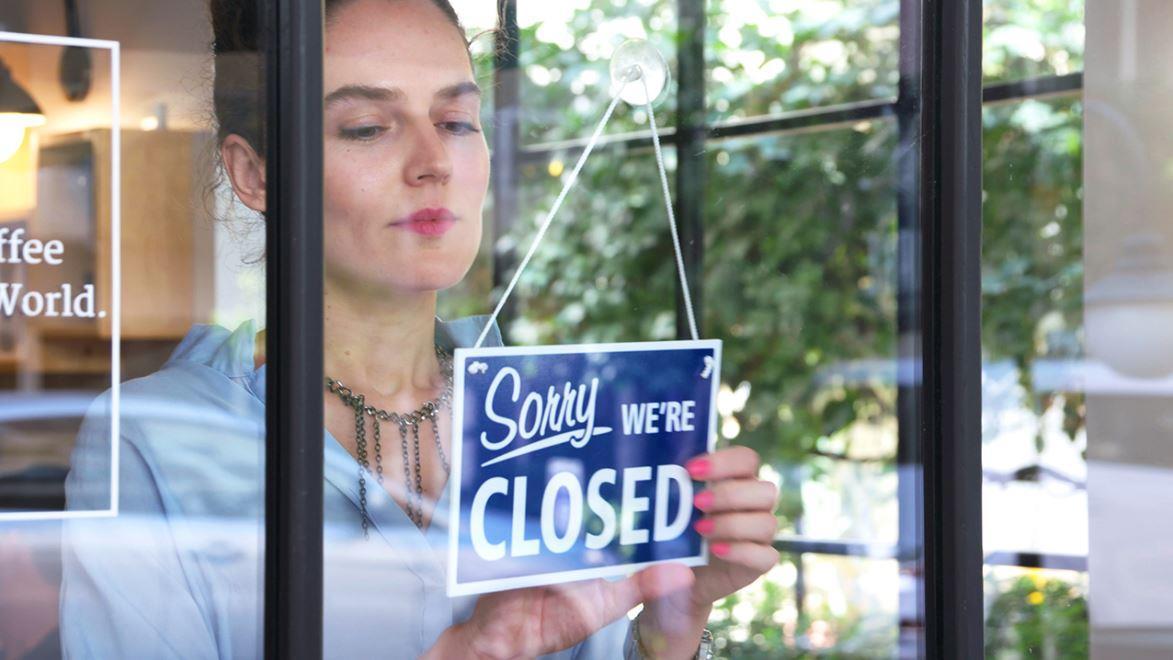Subscription-only restaurants is the new social networking — if you can afford it
Dinner party membership fees at these supper clubs cost thousands of dollars
Ordering from these exclusive menus requires a membership fee.
Restaurateurs and hospitality executives around the world are adopting a We Work-like model minus the work, charging guests an annual fee to access intimate dinner parties and live entertainment that can be nearly impossible to get into otherwise.

More restaurants are charging a membership fees for eaters to access multi-course tasting menus and entertainment.
Omar’s La Boite, a speak-easy style supper club, opened Wednesday on the Lower East Side of Manhattan where guests get access to cocktail parties, multi-course dinner menus and live music from cabaret singers, DJs and dancers in the nightclub space. Prices start at $1,500 annually, and guests can apply online where memberships are marketed with a "FOMO" tactic (millennial speak for fear of missing out) as being the “best cocktail party to be invited to.”

The nightclub at Omar's La Boite. (Cristina Macaya).
New York City-based restaurateur Omar Hernandez, whose dinner parties have attracted stars like Madonna, Spike Lee and Alicia Keys, tapped 21-year-old chef Flynn McGarry, who has been called the “Justin Bieber of food,” for the tasting menu comprised of items like Dover sole and caviar. The idea is to curate a social network and get people out from behind their smartphone screens, Hernandez says.
“It’s more of a social dining club. We’re curating an evening of great company and high comradery with great food and entertainment,” Hernandez told FOX Business. "I don’t want people to just come and have dinner — we want people to cultivate relationships."
The cocktail and dinner party subscription of sorts follows a similar model to Soho House, an international members-only club that costs more than $3,000 a year to access any location around the world. Those who don’t want to splurge on membership at Omar’s can try their luck at getting a reservation on booking site Resy, but won’t get the same access to the all-inclusive entertainment.

The lounge at Omar's La Boite. (Cristina Macaya).
With the ongoing retail apocalypse and rising rent across the country, more restaurant owners and entrepreneurs are tapping into experiential concepts to compete with online meal delivery services and feed the need for interaction outside of the office, industry insiders say.
"The competition among restaurants is fierce," Andrew Rigie, executive director for the New York City Hospitality Alliance, said. "It's about food and beverage quality, service and hospitality, and creating an experience that brings customers back."
Members-only restaurants have been around for years, with some charging thousands of dollars for people to belong. Bohemian, a Japanese restaurant located behind a butcher shop in the Noho neighborhood of Manhattan has been in business for nearly a decade. There’s no phone number or website, so guests must know someone who has dined there to get a seat in the intimate, 15-person dining room. In San Francisco, some eaters pay $2,400 a year to experience The Battery, a social club of sorts for tech execs, venture capitalists and entrepreneurs to dine on lobster and mingle at private lectures, concerts and book signings. In addition to food and wine, the club also features a garden and spa along with an on-site gym.
Internationally, perhaps one of the most exclusive members-only supper clubs is the posh winter playground of the one percent in St. Moritz, Switzerland. Dracula Club, the world-famous jazz and supper club on the premises of the Kulm Hotel, founded in 1974 by photographer and art collector Gunther Sachs, enforces a strict dress code of coats for men. The exclusive club, which used to be a secret club for bobsledders, only holds 150 guests or “life members,” as they're called. Admission begins after 11 p.m., and those who enter are greeted with a life-size coffin in the dimly lit entryway. Diners can nosh on an assortment of luxe dishes like foie gras, beef carpaccio, and black truffle pasta.
While having an exclusive component can elevate a restaurant to become a dining destination, Rigie says the members-only restaurant business model isn’t sustainable longterm.
“Members-only restaurants provide the wealthy and connected an exclusive and private way to meet, eat and drink, but it may be a difficult financial model for many of these restaurants to survive long-term unless they’re subsidized within a larger a larger development,” Rigie said.
Still, some young people are willing to fork over the money and say its an investment in growing their businesses and brand. Michael Tommasiello, 31, who lives in Brooklyn, N.Y. has been a member at Soho House for more than five years.
"I don't mind paying for access to a social club because it's good networking and business," Tommasiello said. "I've taken a lot of clients there for lunch or dinner, and I've met a lot of people, so for me, it helps."
And at a time when Americans are lonelier than ever, having a place to eat, drink and see people you know is like a real-life "Cheers" for those who can afford it.
"I like going to a place where I know I'm going to run into people I know," Tommasiello said.
The trend comes as more consumers are investing in experiences over tangible things. A recent survey polled 3,200 people globally about spending behavior and found that 76 percent said they’d rather spend their money on experiences over material goods, according to findings from advertising agency Momentum Worldwide.
CAVIAR GOES MAINSTREAM WITH PRICES AT RECORD LOW
Research suggests that more and more people are allocating their money towards experiences that make them happy. Research from Cornell University psychology professor Dr. Thomas Gilovich found that the feeling of happiness consumers get from buying something new like a car or clothes fades while experiences like a dinner or vacation have a lasting, positive impact. The psychological term is called the Easterlin paradox, which suggests that money can only buy happiness for so long.




















